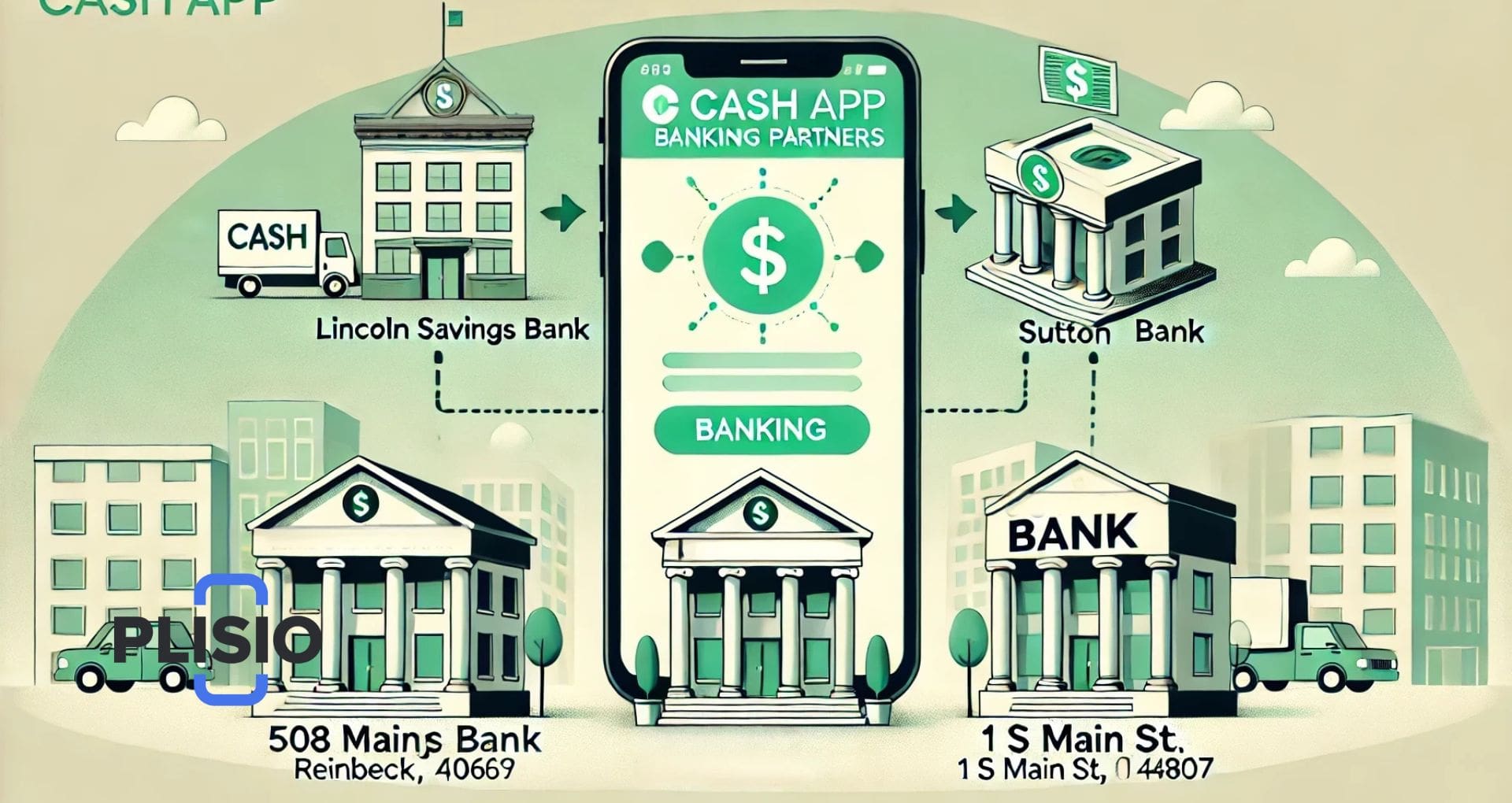Cash App Bank Name and Address: What You Need to Know | Cash App Bank Name

Cash App, a widely used mobile payment service developed by Block, Inc., enables users to send and receive money seamlessly via a smartphone application. While Cash App itself isn't a bank, it partners with two FDIC-insured banks—Lincoln Savings Bank and Sutton Bank—to provide essential banking services to its users. This partnership means that Cash App relies on these banks for its core banking functionalities, making it crucial for users to understand the details of Cash App's banking partners.
What Bank Does Cash App Use?
Cash App collaborates with Lincoln Savings Bank and Sutton Bank to facilitate various financial services:
- Lincoln Savings Bank: Lincoln Savings Bank manages direct deposit services for Cash App users. When you set up direct deposit through Cash App, Lincoln Savings Bank processes these transactions. The bank's address is 508 Main Street, Reinbeck, IA 50669. This address is often required for direct deposit setup and other banking inquiries related to Cash App.
- Sutton Bank: Sutton Bank issues the Cash Card, a customizable Visa debit card linked to your Cash App balance, allowing for in-store and online purchases. The bank's address is 1 S Main St, Attica, OH 44807. Knowing the bank's address is helpful if you need to provide details about Cash App's banking partner for specific transactions.
Both banks are FDIC-insured, ensuring that funds in your Cash App account are protected up to $250,000, offering users peace of mind regarding their funds' safety.
How to Locate Your Cash App Bank Information
To find your specific bank details within the Cash App (including what is Cash App bank name):
- Open the Cash App on your mobile device.
- Tap the "Money" tab (represented by a bank icon) on the home screen.
- Below your balance, tap on the routing and account number.
- Your routing and account numbers will be displayed; you can use these for setting up direct deposits.
The routing number will help you identify which bank—Lincoln Savings Bank or Sutton Bank—is associated with your account. For instance, routing number 041215663 corresponds to Sutton Bank, while 073905527 is linked to Lincoln Savings Bank. This helps you determine the name of the Cash App bank for any specific financial need, such as setting up payroll deposits.
Cash App Bank Name and Address for Direct Deposits
To set up direct deposit with Cash App:
- Access your account and routing numbers as described above.
- Provide these numbers to your employer or the entity initiating the deposit.
- Alternatively, within the Cash App, navigate to the "Banking" tab, select "Direct Deposit," and follow the prompts to set it up.
Cash App allows you to receive up to $25,000 per direct deposit and up to $50,000 within a 24-hour period. Deposits are typically available as soon as they are received, potentially up to two days earlier than traditional banks. Using Cash App's direct deposit feature, you can benefit from the convenience of early payments, making it a valuable option for those looking to streamline their banking activities.
Conclusion: Understanding the Name of Cash App Bank and Its Banking Partners
While Cash App isn't a bank, its partnerships with Lincoln Savings Bank and Sutton Bank enable it to offer users a range of banking services, including direct deposits and debit card issuance. Understanding the name of Cash App's banking partners and knowing how to access your banking information within the app can help you make the most of Cash App's features. Having clarity on which bank—Lincoln Savings Bank or Sutton Bank—handles your transactions ensures smoother financial operations, whether you're receiving direct deposits or using the Cash Card.
